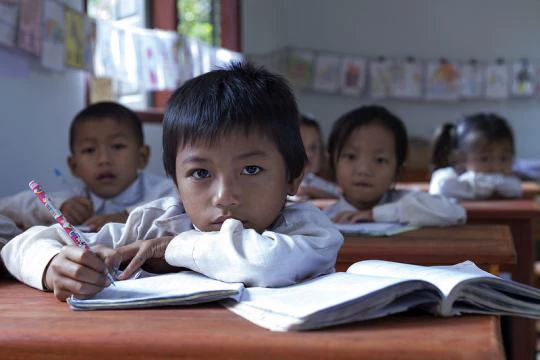I recently came across a report card from my secondary school days in Ireland. It was an interesting read. My progress in areas as diverse as mathematics, singing, Irish language, and physical education was reported on in the form of marks, grades, and narrative feedback. Some teachers provided little information on my learning. Others went into detail. I was impressed by the number of areas in which my progress had been assessed (less so by my lack of singing ability, which, evidently, had been spotted early on!).
Flash forward to 2013, and there is a conversation raging in the development community about how to measure and report on learning globally. A huge concern is the fact that too often children leave school without acquiring the basic knowledge and skills they need to lead productive lives. To make matters worse, there is a global data gap on learning that is impeding efforts to better understand this crisis and how to achieve learning for all.
If we were to create a global ‘report card’ on learning, what would it look like? The multi-stakeholder Learning Metrics Task Force has been investigating this issue over the past 18 months and recently published a report that offers answers to three key questions:
1. What learning is important for all children and youth?
Based on research and consultations with stakeholders in countries around the world, the task force identified the following seven competencies as important for all children and youth: Science and Technology, Numeracy and Mathematics, Physical Wellbeing, Social and Emotional, Culture and the Arts, Learning Approaches and Cognition, and Literacy and Communication. The breadth of areas listed recognizes the need to educate the whole child –regardless of whether she lives in Dakar, Delhi, or Dublin – and that so-called non-cognitive skills are as important to individual and societal development as mathematics and science. Nonetheless, the list has been criticized by some as being blind to the gritty realities in many developing countries as well as in need of further prioritization in terms of essential versus desirable skills in each area and overall.
2. How should learning outcomes be measured?
The task force found that while global learning at the individual level is desirable, it is difficult to measure and report on in ways that have meaning across education systems and countries. Most cross-national assessment exercises focus on generating indicators in the ‘easier-to-measure’ areas of mathematics, reading, and science – and avoid the ‘harder’ areas of art, physical education (unless you count the Olympics), social and emotional skills, and so on. This does not mean that the latter areas are unimportant; rather, that our ability to measure and report on them in globally meaningful ways is lagging. In some instances, such as endangered national languages (Irish, in my case) and religious education, global indicators may have little meaning or be contentious. This means that any global ‘report card’ on learning is unlikely to provide direct indicators of learning in anything but a small subset of areas (albeit these are likely to be the core areas of numeracy and literacy on which acquisition of so many other areas depend). For the others, the emphasis will be on building capacity to measure and report on learning at the local level.
3. How can measurement of learning be implemented to improve education quality?
Most of the evidence reviewed by the task force indicates that measurement can be a highly effective tool for improving education quality and learning (not just reporting on it) if results are leveraged by students, teachers, government officials, civil society actors, and others to improve policy and practice on the ground. Effectiveness is strongly contingent on the timely feedback of results in a usable format to key stakeholders, something that is more likely with classroom-based and national-led assessment efforts (when done well) than with larger cross-national exercises. In this regard, it is important to recognize that any plans for measuring learning globally will, by default, need to emphasize local and national capacity to collect and use learning data, with the generation of global ‘report card’ indicators as a byproduct.
As we approach a new era of development goals for education, it is increasingly evident that access must be accompanied by a focus on learning (some developing countries have already demonstrated that it is possible to balance access and better learning). Given the global data gap on learning outcomes, and the key role that such data play in improving learning, it is evident that this is an area in which we all could and must do better. This week, on November 7-8, the World Bank will host a two-day Symposium on Assessment for Global Learning that brings together key stakeholders to begin to tackle how exactly we can do this. Watch the live webcast here.
Follow the World Bank education team on Twitter: @WBG_Education
Related:



Join the Conversation